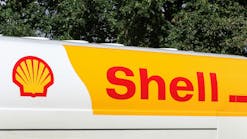Adams Resources & Energy said in a recent earnings call it’s pleased with the first-quarter results posted by bulk transportation subsidiary Service Transport Company given the challenges presented by the COVID-19 crisis.
The Service Transport parent reported a net loss of $11.4 million on revenues of $353.5 million for the first quarter of 2020, compared to net earnings of $4.9 million on revenues of $445.2 million for the first quarter of 2019.
Adams also said Service Transport, which offers liquid chemical bulk, dry bulk, asphalt and liquid petroleum hauling, along with tank wash services, traveled approximately 5.240 million miles during the first quarter this year, compared to 5.075 million miles last year, and 4.668 million miles during the fourth quarter of 2019.
“(Service Transport’s first quarter) included our team’s quick pivot from an environment of declining demand for chemical transport to the effective delivery of high-demand COVID-19 related products, including bleach, soap and disinfectant,” said Kevin J. Roycraft, Adams’ chief executive officer. “We have seen this trend continue to date in the second quarter.
“As in the past, we will leverage our industry-leading record of on-time and safe product delivery to best serve the requirements of the individuals and businesses in the communities in which we operate.”
The company also reported spending approximately $2.2 million for subsidiary GulfMark Energy’s tractors purchase, which it committed to late last year, and an inventory valuation loss of approximately $24.2 million as a result of the dramatic decline in the market price of crude oil that began in early March, substantially due to decreased global demand and subsequent oversupply driven by the COVID-19 pandemic.
GulfMark marketed approximately 109,253 barrels per day (bpd) of crude oil during the first quarter, compared to 113,279 bpd during the first quarter of 2019, and 108,627 bpd during the fourth quarter of 2019.
“Given the environment, we were pleased with our overall results for the first quarter of 2020,” Roycraft said. “Like others in the industry, our crude oil inventory was financially impacted by the significant decrease in crude oil prices beginning in the second week of March driven by the failure of OPEC to collectively agree on production levels and the later dramatic decrease in global oil demand due to the emergence of the global COVID-19 pandemic. Despite this backdrop, we saw a steady stream of activity throughout the first quarter as our crude oil marketing and transportation businesses are deemed essential to US infrastructure.”









